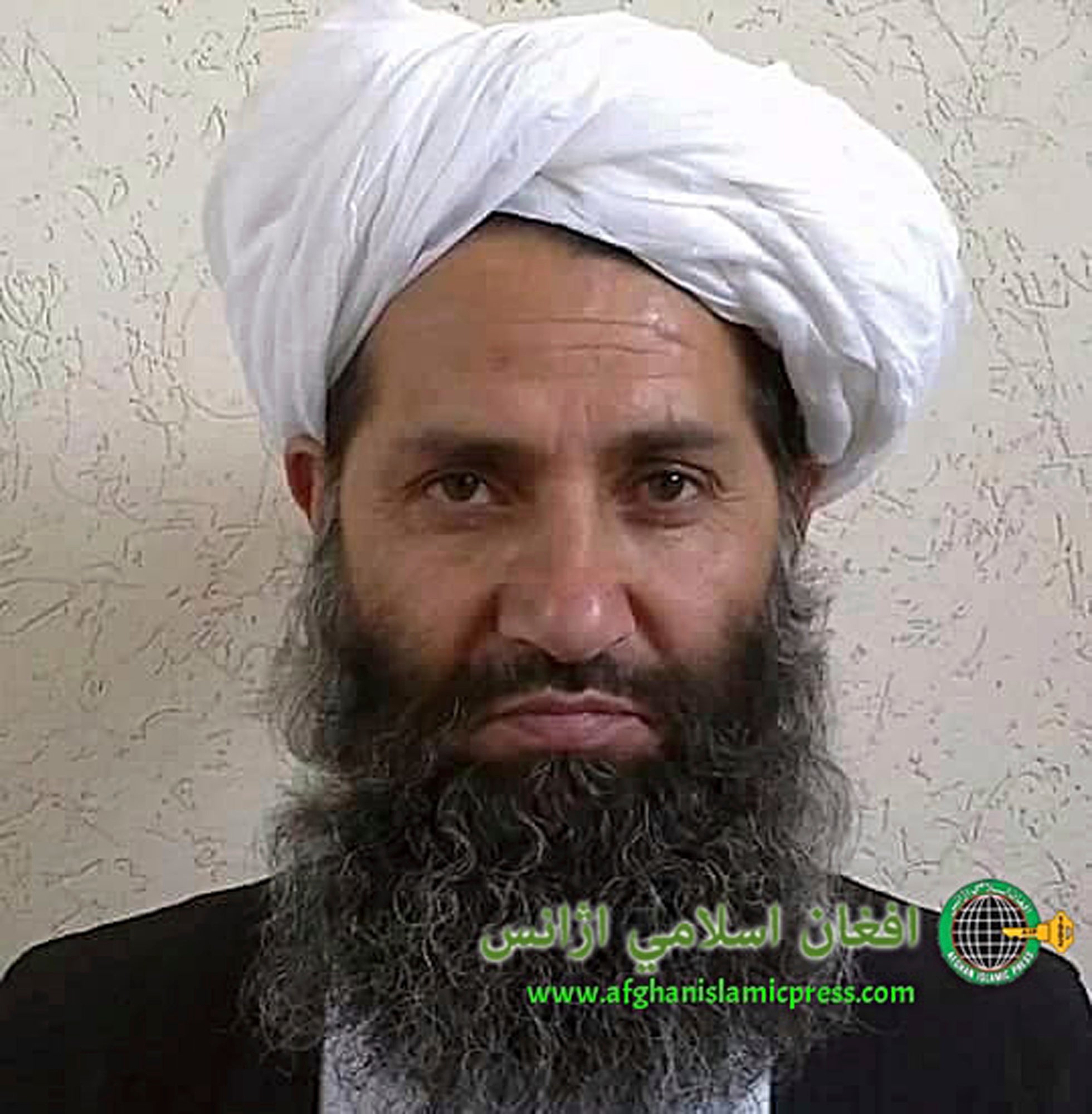Taliban leader: Afghan soil won't be used to launch attacks
Taliban supreme leader Mullah Haibatullah Akhundzada says that Afghan soil will not be used to launch attacks against other countries, and he asked the international community to not interfere in Afghanistan’s internal affairs

Your support helps us to tell the story
From reproductive rights to climate change to Big Tech, The Independent is on the ground when the story is developing. Whether it's investigating the financials of Elon Musk's pro-Trump PAC or producing our latest documentary, 'The A Word', which shines a light on the American women fighting for reproductive rights, we know how important it is to parse out the facts from the messaging.
At such a critical moment in US history, we need reporters on the ground. Your donation allows us to keep sending journalists to speak to both sides of the story.
The Independent is trusted by Americans across the entire political spectrum. And unlike many other quality news outlets, we choose not to lock Americans out of our reporting and analysis with paywalls. We believe quality journalism should be available to everyone, paid for by those who can afford it.
Your support makes all the difference.Taliban supreme leader Mullah Haibatullah Akhundzada said Wednesday that Afghan soil will not be used to launch attacks against other countries, and he asked the international community to not interfere in Afghanistan's internal affairs.
The Taliban say they are adhering to an agreement they signed with the United States in 2020 — before retaking power — in which they promised to fight terrorists. Since their takeover last year, they have repeatedly said Afghanistan would not be used as a launching pad for attacks against other countries.
“We assure our neighbors, the region and the world that we will not allow anyone to use our territory to threaten the security of other countries. We also want other countries not to interfere in our internal affairs,” Akhundzada said in an address ahead of the Eid al-Adha holiday.
The Taliban were ousted by a U.S.-led coalition in 2001 for harboring Osama bin Laden, mastermind of the 9/11 attacks in the United States. The religious group captured power again in mid-August, during the chaotic last weeks of the U.S. and NATO withdrawal from Afghanistan.
The international community has been wary of any recognition or cooperation with the Taliban, especially after they restricted the rights of women and minorities — measures that harken back to their harsh rule when they were last in power in the late 1990s.
Akhundzada, the spiritual chief of the Taliban, has remained a reclusive figure. He rose to leader of the Islamist movement in a swift transition of power after a 2016 U.S. drone strike killed his predecessor, Mullah Akhtar Mansour.
After taking over, Akhundzada secured the backing of al-Qaida chief Ayman al-Zawahiri, who showered the cleric with praise, calling him “the emir of the faithful.” The endorsement by bin Laden’s heir helped seal his jihadist credentials with the Taliban’s longtime allies.
However, in his Eid message Akhundzada said: “Within the framework of mutual interaction and commitment, we want good, diplomatic, economic and political relations with the world, including the United States, and we consider this in the interest of all sides."
A three-day assembly of Islamic clerics and tribal elders in the Afghan capital that concluded Saturday included pledges of support for the Taliban and calls on the international community to recognize the country’s Taliban-led government.
In a surprise development, the reclusive Akhundzada came to Kabul from his base in southern Kandahar province and addressed the gathering Friday. It was believed to be his first visit to the Afghan capital since the Taliban seized power.
In an hour-long speech at the assembly carried by state radio, Akhundzada called the Taliban takeover of Afghanistan a “victory for the Muslim world."
A powerful earthquake in June killed more than 1,000 people in eastern Afghanistan, igniting yet another crisis for the economically struggling country. Overstretched aid groups already keeping millions of Afghans alive rushed supplies to the quake victims, but most countries responded tepidly to Taliban calls for international help.
The international cut-off of Afghanistan’s financing has deepened the country’s economic collapse and fueled its humanitarian crises.